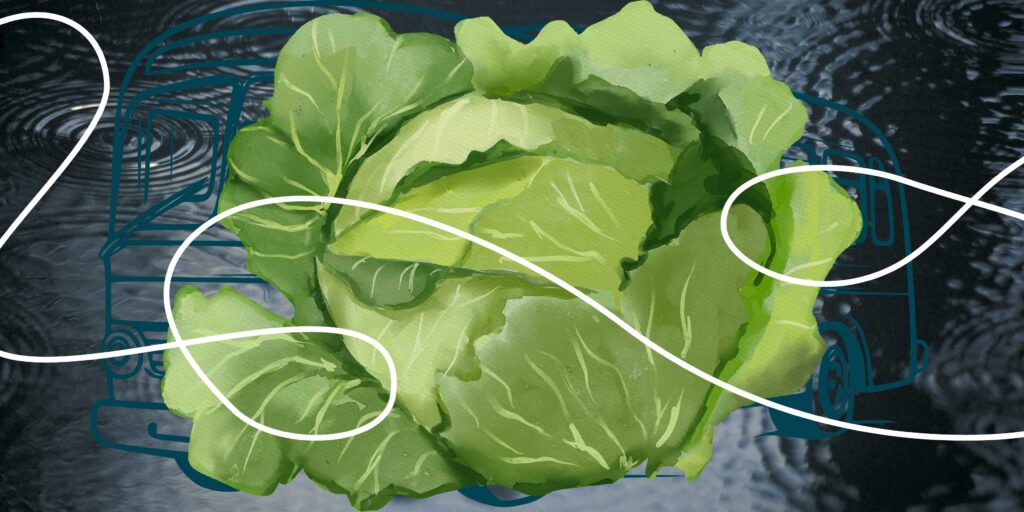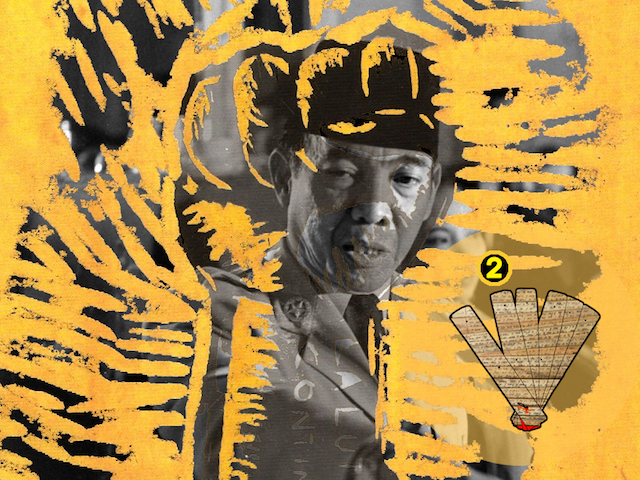An excerpt from Chang-rae Lee’s On Such A Full Sea

February 13, 2014
On February 20th, Chang-rae Lee joins AAWW at Chambers Fine Art for a special reading and discussion of On Such A Full Sea, moderated by novelist Catherine Chung. For more information, visit our events page.
—
It is known where we come from, but no one much cares about things like that anymore. We think, Why bother? Except for a lucky few, everyone is from someplace, but that someplace, it turns out, is gone. You can search it, you can find pix or vids that show what the place last looked like, in our case a gravel-colored town of stoop-shouldered buildings on a riverbank in China, shorn hills in the distance. Rooftops a mess of wires and junk. The river tea-still, a swath of black. And blunting it all is a haze that you can almost smell, a smell, you think, you don’t want to breathe in.
So what does it matter if the town was razed one day, after our people were trucked out? What difference does it make that there’s almost nothing there now? It was on the other side of the world, which might as well be a light-year away. Though probably it was mourned when it was thriving. People are funny that way; even the most miserable kind of circumstance can inspire a genuine throb of nostalgia.
The blood was pumping, yes?
Weren’t we alive!
You can bet that where we live now was mourned, too, in its time, and though it may be surprising to consider, someday this community might be remembered as an excellent place, even by those of us who recognize its shortcomings. But we don’t wish to dwell on the unhappier details. Most would agree that any rational person would leap at the chance of living here in B-Mor, given what it’s like out there, beyond the walls. In the open counties. And even those relative few who’ve secured a spot in the Charter villages might find certain aspects of life here enviable, though they would definitely never say so.
We, on the other hand, will offer this: you can rely on the time here, the tread of the hours. If you think about it, there’s little else that’s more important than having a schedule, and better yet, counting on that schedule; it helps one to sleep more soundly, to work steadily through one’s shift, maybe even to digest the hearty meals, and finally to enjoy all the free time available to us, right up to the last minutes of the evening. Then, if the stars are out—and they do seem to be out most every night now—we can sit together in our backyards and wave a hand to neighbors over the fences and view our favorite programs while sitting in the open air and authentically believe that this stretch of sky sings its chorus of light for us alone.
Who would tell us we are wrong? Let them come forward. Let them try to shake our walls. Our footings are dug deep. And if they like, they can even bring up the tale of Fan, the young woman whose cause has been taken up by a startling number of us. She’s now gone from here, and whether she’s enduring or suffering or dead is a matter for her household, whatever their disposition. They are gone, too, transferred to another facility in the far west, the best scenario for them after the strife she caused.
We can talk about her openly because hers is no grand tragedy, no apocalypse of the soul or of our times. Yes, there are those who would like to believe otherwise; that each and every being in the realm is a microcosm of the realm. That we are heartened and chastened and diminished and elevated by a singular reflection. This is a fetching idea, metaphorically and otherwise, most often enlisted for promoting the greater good. But more and more we can see that the question is not whether we are “individuals.” We can’t help but be, this has been proved, case by case. We are not drones or robots and never will be. The question, then, is whether being an “individual” makes a difference anymore. That it can matter at all. And if not, whether we in fact care.
Did Fan care about such things? We can’t be certain. We know much about her daily life but that still leaves a great deal to be determined. She was perhaps brighter than most, certainly less talkative, but otherwise, in terms of character, not terribly distinctive. Nor would anyone have thought that she could do the thing she did. Such a lamentable action!
She did stand out physically, and not because she was beautiful. She was pleasing enough to look at. She was tiny, was the thing, just 150 centimeters (or not quite five feet tall), and slim besides, which made her the perfect size for her job in the tanks. At sixteen she had the stature of a girl of eleven or twelve, and thereby, when first encountered, she could appear to possess a special perspective that one might automatically call “wisdom” but is perhaps more a kind of timelessness of view, the capacity, as a child might have, to see things and people and events without the muddle of the present and all it contains. Perhaps Fan truly had that kind of clarity, and not just a semblance of it.
But if we may, let us picture her before the trouble, just as she was, clad in black neoprene, only the pale gleam of her bare feet and hands and face to indicate her humanity. Once she pulled on gloves and flippers and her eye mask, she looked like a creature of prey, a sleek dark seabird knifing into the waters. Of course, that’s not what she did in the tanks, where her job was to husband and nurture the valuable fish that allow our community to do so well in this mostly difficult world. She was one of the best in her function as a diver, easily able to hold her breath for two minutes or more while she scrubbed and vacuumed and replaced tubing and filters, and patched whatever tears had formed in the linings, a half-weight vest to hold her beneath the surface. Even that was almost too heavy for her and she would have to bend her knees while at the bottom of the two-meter-deep water and propel herself upward to breathe, before descending again, her various tools attached to her work belt.
Once submerged, a diver is not easily seen. Given all the fish in the water—naturally as many healthy fish are raised as possible—she is a mere shadow among them, trained to do her tasks quickly and unobtrusively. That is why she uses no special breathing apparatus aside from a snorkel, compressed gases causing too much of a disturbance. Fearful fish are not happy fish. The diver is not “one of them” but is part of the waterscape from the time they are hatchlings, and they see her customary form and the repeated cadence of her movements and the gentle motor of her flippered feet that must come to them like a motherly lullaby. A dream-song of refuge, right up to the moment of harvest. The diver is there at harvest, of course, and sees to it that the very last of them finds its way into the chute. And it is only then, for the span of the few hours while the tank is being cleaned and filtered before the next generation of hatchlings is released, that the water is clear of activity, that the diver is alone.
How somber a period that must be. The constant light from the grow bulbs filtering through the canopy of vegetables and herbs and ornamental flowers suspended above the tanks throws blue-green glints about the facility walls, this cool Amazonian hue that suggests a fecundity primordial and unceasing. The diver inspects each aquarium, which is roughly the dimension of a badminton court, and by the end she is exhausted not by the work or holding her breath but instead from the strange exertion of pushing against the emptiness. For she is accustomed to the buoying lift of their numbers, how sometimes the fish seem to gird her and bear her along the tank walls like a living scaffold, or perhaps lead her to one of their dead by swarming about its upended corpse, or even playfully school themselves into just her shape and become her mirror in the water. At the pellet drop they are simply fish again and thrash upward, mouths agape, the vibrato of the water chattering and electric, as if bees were madly attempting to pass through her suit. And wouldn’t it be truth enough to speak of those bristling hundreds as not only being cared for by the diver but as serving to shepherd her, too, through the march of days?
For who is she, given the many hours she and all the other members of her household spend at their jobs and how generally sparse their conversation is during downtime or when they’re having their morning or evening meal while watching a vid or game? All around B-Mor it’s much the same, which is happy enough. But maybe it’s the laboring that gives you shape. Might the most fulfilling times be those spent solo at your tasks, literally immersed or not, when you are able to uncover the smallest surprises and unlikely details of some process or operation that in turn exposes your proclivities and prejudices both? And whether or not there is anything to be done about it, you begin to learn what you value most.
For Fan, more than the other divers, took to the tanks with a quiet abandon, rarely climbing out at the ending hour to peel herself of the suiting in the changing room with the others. She would appear just as they were leaving for home, or if she didn’t and they grew concerned, someone would go to her tanks and check that she was still working. For divers have perished from time to time, as they can believe too well that they are one of the throng. But Fan would be there, simply swimming about, scrubbing or patching, and the other diver would splash the water and wait until Fan surfaced with a thumbs-up. She once told us that she almost preferred being in the tanks than out in the air of B-Mor, that she liked the feeling of having to hold her breath and go against her nature, which made her more aware of herself as this mere, lone body. In the hour or so after the shift, with no more tasks to be done, she would pull her knees to her chest and drift to the bottom and stay there in that crouch until her lungs screamed for forgiveness. She wasn’t inviting oblivion or even testing herself but rather summoning a different kind of force that would transform not her but the composition of the realm, make it so the water could not harm her. And we would say, Please, Fan, please, you cannot truly believe this, and she would almost smile and mostly nod but the impression you were left with was that she did, in fact, believe in such a possibility. And if that is an indication of her instability, everything else that happened makes sense and no more needs to be accounted for.
But let’s suppose another way of considering her, which was that she had a special conviction of imagination. Few of us do, to be honest. We wish and wish and often with fury but never very deeply. For if we did, we’d see how the world can sometimes split open, in just the way we hope. That it and we are, in fact, unbounded. Free.
Not that this means Fan was wholly in the right. Though we will not say this of her boyfriend, Reg. He was just anybody else, in most people’s view, except perhaps that he was tall and had the most beautiful skin one might ever see. This sounds silly, but this was Reg, in a phrase. His skin was the color of a smooth river stone, though one that’s lighter than those around it, a wheat-brown, buttery hue that seemed to glow warmer in the pale illumination of the grow facility. That’s where they met, as he took care of the deck of vegetables that perched over her tanks. His long arms could easily reach the inner sections to plant and pollinate, prune and harvest, and it’s a fetching image of the two of them, he standing high on his ladder that rolled side to side on a track, she paddling in the cool waters below, both at labor for the good of our community like any responsible pair.
Workers in the grow facility regularly become romantically involved, there’s no rule or code against it, and there are probably dozens of families in our part of B-Mor originating from such unions; we ourselves derive from two of the first generations of growers, this well before the fish tanks were laid in. Stability is all here in B-Mor; it’s what we ultimately produce, day by night by day, both what we grow for consumption and how we are organized in neighborhood teams, the bonds of blood or sexual love relied upon equally to support our constitution. In this difficult era the most valuable commodity is the unfailing turn of the hours and how they retrieve for us the known harbor of yesterday, and in this sense, too, there was really nothing to alarm about Fan and Reg, who were just another estimable couple, if almost comically mismatched in height as they strolled the neighborhood on the more pleasant evenings.
But one day, toward the end of the shift, Reg was told to go speak to the manager. Fan didn’t even notice him leaving; there was no reason to. People are called in all the time to be informed of some minor change in schedule or procedures. This is likely what one would assume as you took off your gardener’s gloves and ascended the stairs to the manager’s mezzanine office filled with screens and controls. For example, there will be a switch-out of this fish or vegetable for another, depending on what’s in demand in the Charter villages. Recently there was a call for Japanese knotweed because it supposedly prevents certain blood Cs, so now at each meal every Charter adult and child eats Japanese knotweed, kilos of which anybody can easily pull from the ground beyond the walls but which, of course, being out there, no one would ever touch.
Reg was summoned from his ladder the day before his free-day. On free-day, Fan was seen sitting by herself in the park, listening to music through her earbuds. She didn’t appear distraught; apparently Reg (or else somebody posing as Reg) had messaged her to say that he was occupied, no further explanation, and would see her the next day. His family was unconcerned; Reg was known to wander, sometimes even beyond the walls. It’s not that he was reckless or dimwitted, though it must be said that Reg was never going to ace the Exams, not in a millennium. In fact, he didn’t even bother to take them. He was the sort of kindly, dreamy boy who is prevailed upon by whim and instinct, and if he sometimes found trouble, it was always the charming kind, such as when a dog gets his muzzle stuck in a jar of peanut butter. We all recall the time he decided to rig his harvest tray directly onto his back rather than filling it and bringing it down and then lugging an empty one back up, and at first it seemed to be working, despite the ungainly appearance, as he’d gently drop the tomatoes over his shoulder while he stood on the ladder, filling it steadily. But it got much heavier than he anticipated, and when he momentarily lost balance on the rung, the fully laden tray tipped him backward. It was a ridiculous mess and the floor forewoman was furious over the ruined fruit and Reg, his kinky head of hair pulp-sopped and dripping, was lucky his neck wasn’t broken, for how he landed on that bin. You could only chuckle and think, Reg, you especially are one fortunate young man for being born inside B-Mor!
But when he didn’t appear the first workday of the week, people began to talk. As always Fan worked in the tanks, rarely coming up for more than a few minutes straight. At the lunch hour someone went to Reg’s row house to see if he was ill, and at first no one answered but then his aunt opened the door just long enough to say that Reg wasn’t there anymore. When asked what “anymore” meant, she simply replied that they didn’t want to be bothered and shut the door on him like he was any open counties peddler allowed into B-Mor for the day. And when the shift was over, we asked Fan what she knew and all she could say was that she, too, had stopped by his family’s house and been brusquely turned away. The following day Fan asked the forewoman what she knew of Reg’s whereabouts and she referred her to the manager, who told her that it was now a directorate-level matter and that he had no idea where Reg was. After that, Fan went to the succeeding manager and administrator until there was no one else here in B-Mor to query; for more definitive word from above, she would have to question a Charter person, who (for us) are as rare a sight as honeybees.
A week passed by, then nearly two. There were scattered rumors and gossip and the broader rumblings of what must be called a genuine vexation, if not anger, that echoed about the lofty ceilings of the grow facility and on the stoops of the narrow-faced row houses. In the past few seasons one heard of similar “call-aways” at other facilities, including B-Mor. Sure, some of us had been summoned from work and sequestered for a few days and then had been returned to our posts. But Reg was gone. Had his clan made noises of dissent, there might have been a swell of emotions but they all went about their jobs or studies and did not air a single word of question or complaint, which at first surprised us but soon enough was like a cold quilt thrown over our corpus, snuffing every atom of ill heat. They were magnificently silent. For naturally you then think, If his kin are this placid, well . . .
And you could think Fan, too, was mute on the subject, for whenever one of us would approach her to see if she knew anything, she’d simply affix her mask and disappear beneath the densely populated waters, or if out on the block, she’d raise the volume of whatever she was listening to and take an escaping tack on her scooter. She had a typical cohort of friends and acquaintances from work and the neighborhood but she receded from them after Reg disappeared, or they from her, even though there was no shunning going on, more a realization by all that Fan and Reg had come to belong together and that once unpaired, Fan should be perhaps left alone for a while. No one brought up his or her theories of what happened to him or why. You would expect the directorate of B-Mor to put out word official or otherwise of what he had done in order to stall speculation and focus our attention on some act or crime, but the remarkable thing about a silence so total is that it soon squares your attention not on the subject but on your very self. For you can’t help but interrogate your own behavior, actions, tendencies, even the stray skeins of your thoughts, and not wonder how in the course of the days you may have been close to transgressing some unspecified limit. It’s like when a toddler has a toy drum or piano and unconsciously taps away at it without a mote of annoyance from his seemingly copacetic father, right up until one random ordinary clang, which instantly dissipates the man’s patience and the keyboard ends up smashed.
Did Fan know more than what she let on? She must have known that Reg had done nothing wrong. He was an innocent, through and through, which is why she admired him. And isn’t this why we admired Fan, too, this tiny, good girl, who never crossed anyone or went against even a convention of B-Mor, much less a regulation, until the moment she did? And why, despite her present notoriety, we think of her still as one of us, one of our number, even as she left us for the open counties? Some would balk at this, they can hardly utter her name without a stony jaw, unable to forgive Fan for what she did before disappearing of her own accord as much as for the greater troubles that arose afterward. For how unnecessary all of it was. And from a certain perspective this was true. It was unnecessary. She had larger aims for sure, and it can be argued that she attained some measure of them, but why before leaving she had to poison some of the tanks is not fathomable. It makes no sense. The funny thing, the oddest thing, even for those of us who won’t eternally condemn her, is that she caused the deaths of only her own fish, the ones she so carefully raised.
Those poor sweet fish.
Excerpted from ON SUCH A FULL SEA by Chang-rae Lee by arrangement with Riverhead Books, a member of Penguin Group (USA), Inc., Copyright © 2014 by Chang-rae Lee



